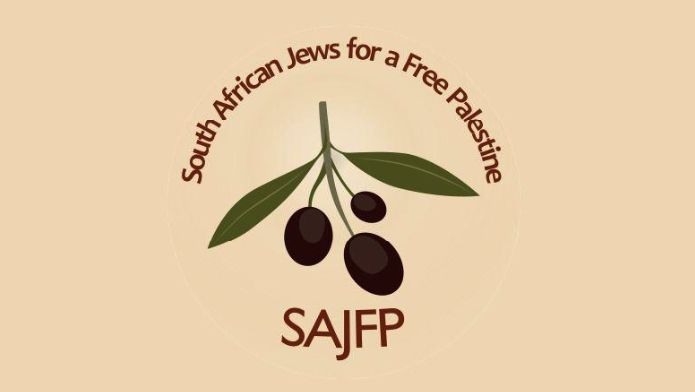Recently Ha’aretz ran an article called ‘”Scary Time to be a Zionist:” Is Africa’s Top University No Longer a Welcoming Place for Jews’. It began much like a fairy tale: ‘High on the slopes of storied Table Mountain, the University of Cape Town has for decades been the school of choice for South African Jews.’ But, as in any good story, this idyll is facing a threat. Despite its many Jewish students, the university has adopted a resolution that would narrow the definition of antisemitism, and another that will involve a boycott of certain Israeli academics and institutions. The article does not look only at these formal developments but also quotes individual students, a rabbi, and aggrieved members of faculty in order to paint a menacing picture. The sky has darkened before and, as every Jew knows, we should always look out for such signs and omens.
UCT is also a microcosm of conditions in South Africa as a whole. The relatively large Jewish body in UCT has not prevented the university from taking anti-Israel measures, and the relatively large Jewish population in South Africa has not prevented South Africa from taking Israel to the ICJ on the charge of genocide. The community is thus doubly beleaguered! No wonder, since, as the author notes,‘the ruling African National Congress has long backed the Palestinians,’ though no explanation for so mysterious an affiliation is given.
This is a story about the tribulation of Jews – apparently caused by an inexplicable animus against them. And this is hardly extraordinary since we have faced inexplicable hatred from time immemorial. Palestinians are entirely peripheral, entering the story in a remote, even tangential way. This is entirely within the tradition of Zionist narratives, from the beginning when a land without people was breathlessly waiting for a people without land, there they were, in such a teeming metropolis as Jaffa; in schools, banks, orchards, businesses and farms, all covered in an immense invisibility cloak. The average reader could be forgiven for failing to connect anything of ‘Scary Time to be a Zionist’ to the recently released names of fatalities in Gaza, seven-hundred-and-ten not yet having reached a whole year of age. Eleven pages of the same document detail the names of those between seventy-seven and a hundred-and-one who have been killed. But this is not about Palestinians, and we should not get sidetracked.
The adversary in this story is the old one – antisemitism. It is true that there have been no reports of actual antisemitism at UCT but that does not mean that this perennial topic is irrelevant. For example, one of the resolutions adopted by the Council of the University of Cape Town involves the definition of antisemitism, affirming that criticism of Israel is not antisemitic. This is one of the matters that Professor Adam Mendelsohn is planning to challenge in court. One argument in Mendelsohn’s founding affidavit compares the council adopting this resolution to it choosing between the ethics of Kant and those of Aristotle. For Mendelsohn it is a subtle and abstruse question best left to scholars. The question of whether criticising Israel is necessarily antisemitic seems, in his opinion, to be worthy of endless leather-bound volumes of learned interpretation.
Meanwhile, more than forty-one-thousand Palestinians have been killed in Gaza in the last year. No one is questioning the fact that tens of thousands of Gazans have been killed, but since mentioning it might imply criticism of Israel which might be considered antisemitic, it is probably best not to mention it too loudly. Or, perhaps we are allowed to quote the figures, but it is in drawing the obvious inferences that we will cross that smudgy line.
Another resolution adopted by the council of UCT commits it to ensuring that UCT academics sever ties with academics and institutions connected to the Israeli military. To avoid any possible charge of antisemitism, here again it is probably best to omit the fact that the Israeli military has killed ninety-five university professors, nine thousand seven hundred and seventy-three students and four hundred and nine educational staff in Gaza. We will also maintain strict silence about the six-hundred and twenty-five thousand students in Gaza who now have no access to education, as well as the fact that all twelve universities in Gaza have been bombed.
L’havidil, as they say – to return to the proper topic, Professor Adam Mendelsohn is challenging the academic boycott in court as he, and five other UCT academics, believe it interferes with their right to academic freedom. In short, Mendelsohn believes researchers should be free to collaborate with academics affiliated with the Israeli military. On the other hand, he doesn’t think academics should be so free that they can freely criticise Israel. For Mendelsohn and the other academics challenging the resolutions, the right to academic freedom is crucial; or perhaps it is their own academic freedom that is crucial to them. It would be difficult to discern their stance on academic freedom in Gaza, given that the educational system in Gaza, along with everything else, has been pulverised.
Again, we ought not to lose focus on the real topic here. The real topic is the increasingly dire conditions that Jewish Zionist members of the UCT community must deal with. Take ‘Esther’, for example. Esther is not her real name but most of the speakers here are far too afraid to be identified. ‘Esther’ says ‘when the war broke out’ (the author helpfully notes that this was on the 7th of October – lest we consider it 1948) ‘I felt like I couldn’t turn to any non-Jewish staff or students at the university for support, for fear that they would accuse me of supporting “genocide” and label me a racist.’ While it seems unlikely anyone would have made such accusations shortly after the massacres of the seventh of October, widespread sympathy for Israel did soon wane. Could it have been the avalanche of dehumanising rhetoric by Israeli leaders? The rapid obliteration of Gaza’s basic infrastructure? The deliberate withholding of food, water and power from civilians? Did the demolition of mosques, hospitals, and schools lead to a dearth of warm fuzzies? Esther is curiously silent on this question.
In July this year the the International Court of Justice found Israel’s occupation of Gaza, The West Bank and of East Jerusalem to be illegal. This however did not prepare ‘Gideon’ for class. ‘Gideon’ (not his real name) was discomforted by a lecturer beginning by ‘condemning the Israeli occupation and referring to the IDF as the IOF – the Israeli Occupation Forces.’ In ‘Gideon’s’ own words, ‘It was very uncomfortable’. A Times Magazine article, ‘The Mental Health Toll of the War in Gaza’, cites a study ‘conducted across the West Bank and Gaza (which) found that 100 percent of participants had been exposed to traumas in 2021, including events as varied as land confiscation, detention, home demolition, loss of loved ones, and fear of losing one’s life.’ Hearing that an army you have been raised to admire is engaged in operations that are objectionable is uncomfortable. Being directly subject to those operations may be a little worse. Among those discomforted include hundreds of children who are arrested every year, blindfolded, hands tied behind their backs, subjected to violence and denied any legal representation.
This all, however, is far from the arduous conditions faced by Zionist Jews at UCT. One can understand how ‘high on the slopes of storied Table Mountain’ one might want one’s favourite fairy tales, if not perpetuated, to be at least sustained. Or, as Anonymous puts it, ‘it is not so much “physical safety” that is the problem for Jewish students on campus, but “ideological safety.”’ Must those who have been reared on the notion that Israel is a star of virtue, its army the most moral in the world, have their illusions stripped from them in such a scenic spot?
Early on Jewish children are impressed with the notion that when the UN graciously offered the Palestinians some part of their own land (the rest to go to a new state for a group mostly arrived from elsewhere) the Palestinians mulishly rejected it. As a consequence Israel had no choice but to carry out extensive ethnic cleansing. And ever since Israel has been forced into a life of escalating crime: collective punishment, torture, assassination and genocide. ‘We can forgive the Arabs for killing our children. We cannot forgive them for forcing us to kill their children’, said the great Golda Meir in a much quoted instance of epic victim blaming.
As it turns out they have made us kill at least 11 000 of their children just this last year.
Like other people and institutions around the world, UCT has taken a position. As elsewhere, this position sanctions Israel and is thus opposed by Zionists. As elsewhere, Zionists therefore insist that this is all about antisemitism, and has nothing to do with Palestinians. They insist on this – with a straight face – even though, as in many other places, Jews are at the forefront of the movement. False accusations of antisemitism actually constitute hate speech. However, the type of person who can tolerate refugees being set alight in their tents, civilians being starved and toddlers being used as target practice, are not likely to be deterred by the risk of committing such an infraction.
Like other interviewees, Professor Jeffrey Bagraim admits that he ‘does not believe it (UCT) to be an unsafe place for jewish students and staff’. He also feels the need to add that this is despite the ‘growing pockets of hateful anti-Zionist ugliness’. He does not elaborate on what he means by the ‘hateful anti-Zionist ugliness’. Much of anti-Zionism simply involves exposing the consequences of Zionism – and so we have harrowing images: rows of wrapped corpses, babies with multiple amputations, body-horror injuries and dust-coated despair. These ‘ugly’ pictures are the corollary of those shown by Zionists: soldiers rolling out in courageously armoured tanks, and doing happy hero dances before detonating multi-story residential buildings. These are simply different sides of the same coin. With respect to which set of pictures is hateful – you decide.

